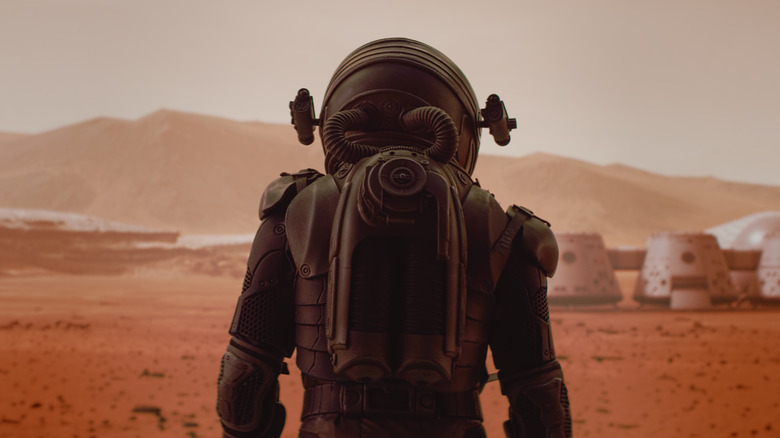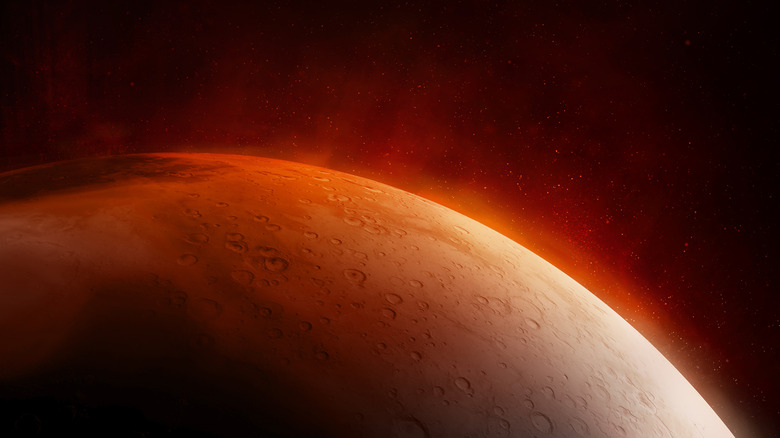These Are The Foods Humans Could Possibly Eat On Mars
Living on Mars might seem like a far-fetched possibility, but in reality, human colonization of Mars might be nearer in the future than we might think. Smithsonian Magazine sat down with Kevin Cannon, planetary scientist and co-author of the paper "Feeding One Million People on Mars," to learn what foods Martian settlers might eat, and how they could be procured or produced. It's a tough scenario given the challenges presented by Mars: because of the cold climate and almost no atmosphere, a colony would require an enclosed, heated, and pressurized environment for growing. Cannon and his co-author, Daniel Britt, think it can be done.
Essentially, the plan is to grow crops and vegetables in underground tunnels, gain protein through insect-based products, and acquire meat from a process called cellular agriculture, in which meat is grown in bioreactors from animal cells. It certainly sounds like a big improvement from the irradiated meat and space ramen that NASA astronauts are used to snacking on, and the frozen space ice cream of our childhoods. But let's dig in further.
Growing and harvesting the future
According to Cannon, astronauts currently in space have small gardens where they can grow vegetables (via Smithsonian Magazine). In his plan, this process would be expanded to a much bigger scale and would include crops like corn, wheat, and soy that are higher in calories. As for the meat portion, Cannon's plan includes cellular agriculture, in which cells would be withdrawn from an animal and grown in a nutrient solution. He points out the method would be not only efficient, but also a more ethical way of securing protein — and, he says, we're already closer than you might think to being able to do this on Earth.
It's the third part of Cannon's plan that may seem the most unappetizing. Grossed out by the thought of eating insects? You may not be alone, but turns out two billion humans have insects on their standard menus and enjoy them as a regular part of their diets. "It turns out to be a very good source of protein and again, it's much more sustainable. It doesn't require a lot of land or a lot of water compared to factory farming practices," Cannon says. He recommends grinding them up and sprinkling them on your favorite foods to combat the "gross factor."
What's for dessert? Cannon didn't specify. Perhaps we'll leave our junk food habits behind on Earth. Either way, it sounds like humans will be feasting on well-rounded, nutritious meals when we land on Mars.

